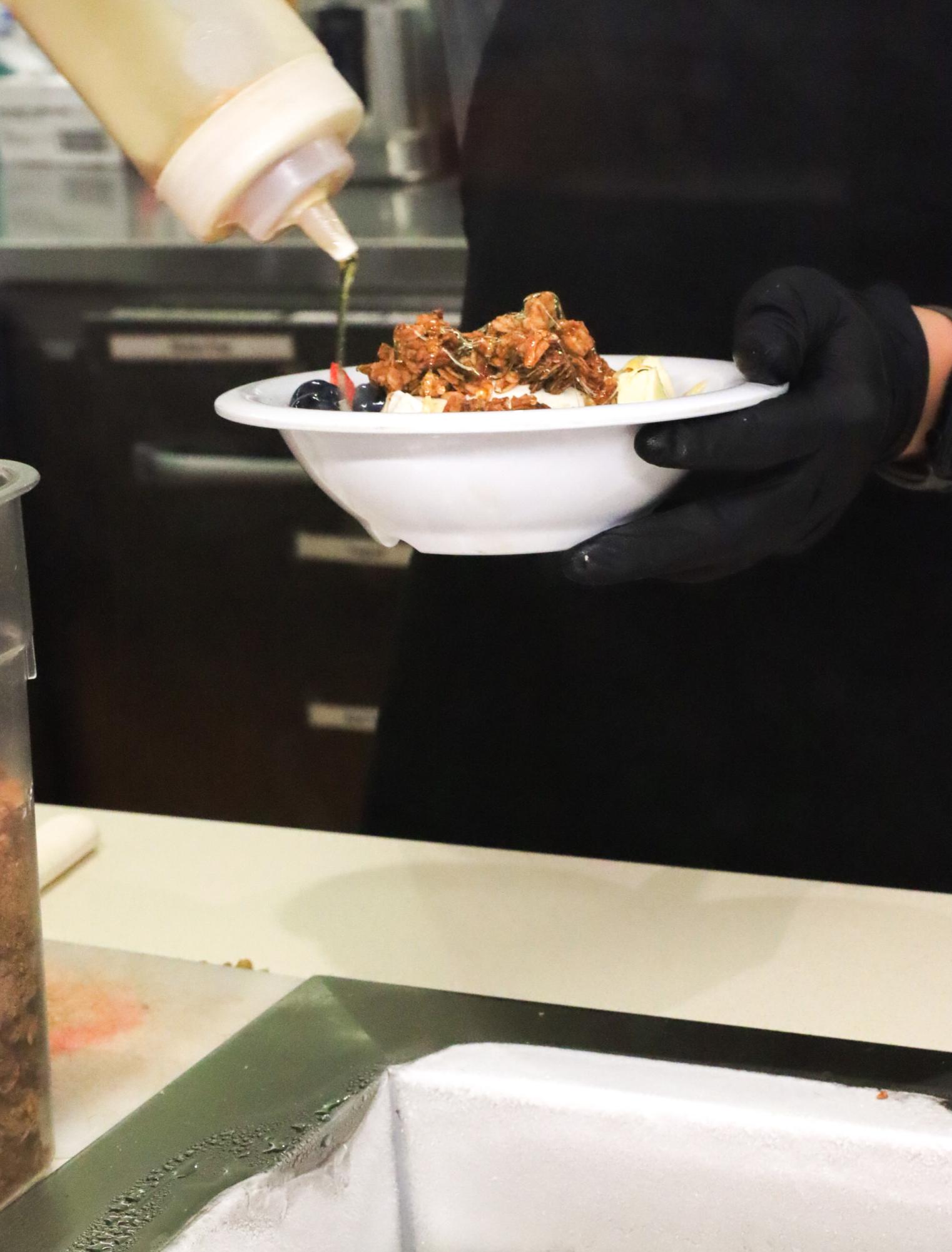Editor’s note: This story has been updated with a new definition of the word halal
From meat to poultry to greens to grains, a balanced diet consists of five portions a day of nutrition, protein and vitamins.
But for Oregon State University students who have diet accommodations for their religion, how do they make it work?
Hiba Mustafa, a Muslim freshman at OSU, says that with her religion, she can’t eat pork. This limits her to types of meat considered halal (an Arabic term meaning permissible, used to refer to foods which meet Islamic dietary law), which she says only a few dining places have to offer on campus.
“University Housing and Dining Services is definitely trying. It’s way better than what I expected,” Mustafa said when asked how she feels about the dietary options on campus.
UHDS provides OSU’s campus with a living and dining environment for students on campus.
“Currently, in all three dining centers and in UHDS-managed Memorial Union restaurants, multiple types of foods are reviewed and labeled. This includes foods that contribute to religious dietary restrictions of some of the multiple demographics on campus,” said Bailey Taber, assistant director of dining at UHDS.
In the state of Oregon, according to studies, 28% percent of citizens claim to be very religious, while another 25% claim to be moderately religious.
As for the geographic size of the student population of OSU, the school is ranked 475 out of 2,183 schools.
Therefore, there’s a large number of people who come from culturally diverse backgrounds and many who are part of a religion that requires them to avoid eating certain foods.
However, with more options of food available, there comes the struggle of making sure there’s a high enough supply for everyone.
“They run out really quickly. The beef burgers are halal, but I don’t want to eat a burger every day, so I prefer a sandwich, and they only have chicken. So I end up getting a vegetarian sandwich,” Mustafa said.
When asked about the current demand of certain foods, Taber said that UHDS is aware of a growing demand for foods that exclude beef.
“UHDS will be working to determine which foods will need to be labeled for beef, which could include derived ingredients, and whether there may need to be ingredient substitutions or restrictions.”
While some students may feel the shift in demand for other options, Omar Ambon, a Muslim student at OSU from Saudi Arabia, disagrees.
“For myself, I feel like (the options) are enough to not have to look for somewhere else to eat.”
With around 25 restaurant options on campus, it’s important to have various options and accommodations for students, especially those with culturally diverse backgrounds.
Neeva Deacon is a sophomore student worker at Marketplace West who usually works at the deli station that crafts sandwiches for lunch goers.
“We do have options that are halal. We also have some food that’s specifically kosher, like a lot of the snacks we sell. Some of our sandwiches have pork in them, and we have to specify (if a customer asks) what the club has in it,” Deacon said.
Another large concern for altering the menu comes with contamination issues. One important thing to discuss is how food is prepared with people for dietary accommodations.
“Some people ask for there to be no contact with meat whatsoever, so we sanitize the whole area; all the knives we use, and we put it on a tray,” Deacon explains.















































































































